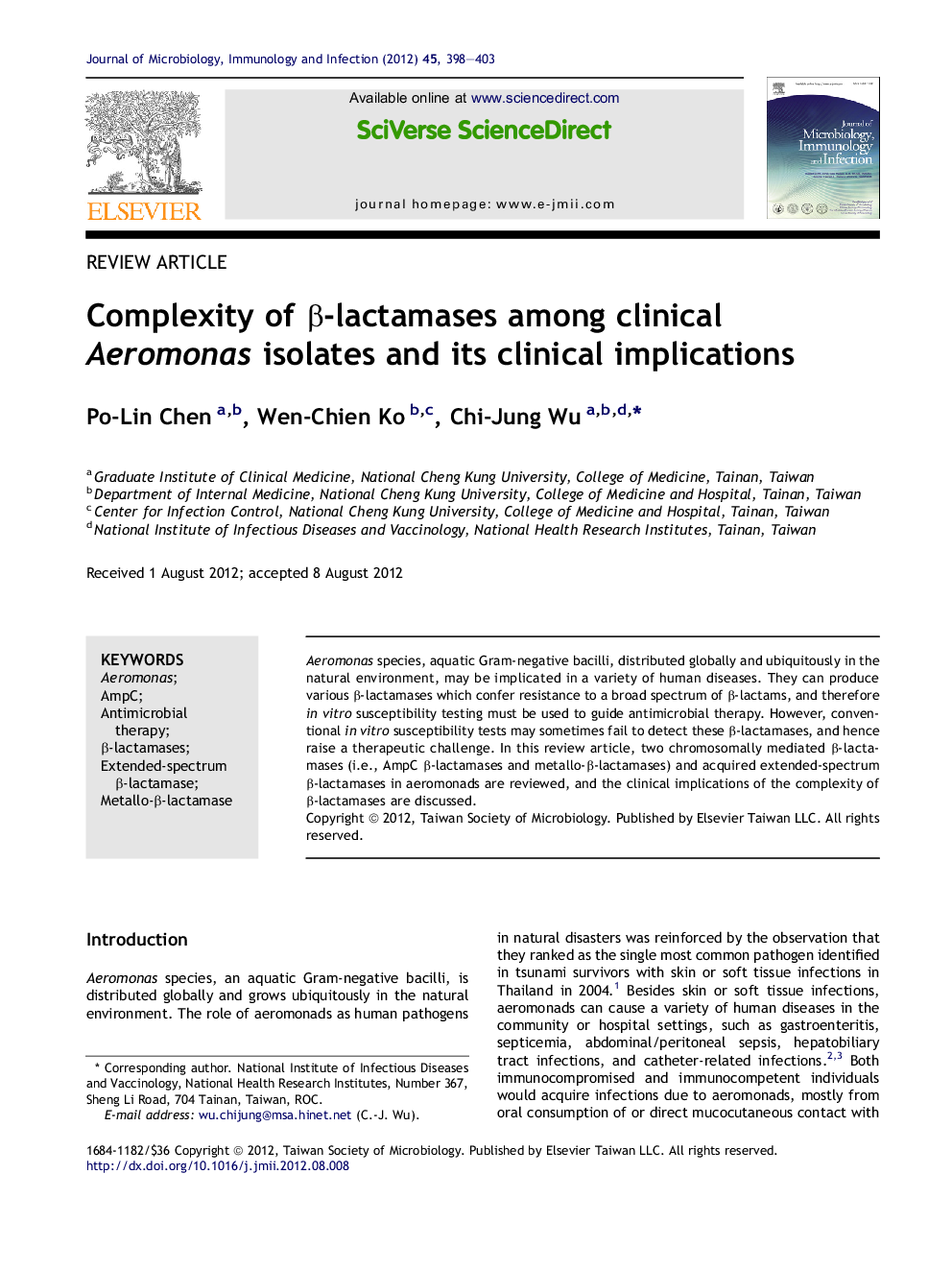| Article ID | Journal | Published Year | Pages | File Type |
|---|---|---|---|---|
| 3378155 | Journal of Microbiology, Immunology and Infection | 2012 | 6 Pages |
Aeromonas species, aquatic Gram-negative bacilli, distributed globally and ubiquitously in the natural environment, may be implicated in a variety of human diseases. They can produce various β-lactamases which confer resistance to a broad spectrum of β-lactams, and therefore in vitro susceptibility testing must be used to guide antimicrobial therapy. However, conventional in vitro susceptibility tests may sometimes fail to detect these β-lactamases, and hence raise a therapeutic challenge. In this review article, two chromosomally mediated β-lactamases (i.e., AmpC β-lactamases and metallo-β-lactamases) and acquired extended-spectrum β-lactamases in aeromonads are reviewed, and the clinical implications of the complexity of β-lactamases are discussed.
